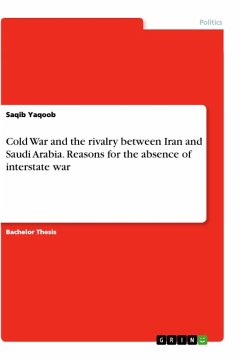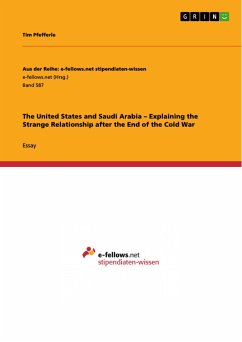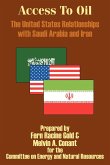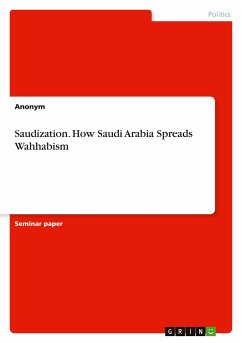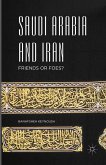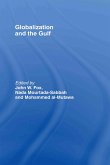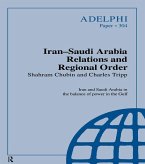Bachelor Thesis from the year 2018 in the subject Politics - Topic: Peace and Conflict, Security, grade: A, GC University, course: BA (Hons) Political Science, language: English, abstract: This research seeks to uncover the research objectives as the reasons behind the absence of interstate war from 1979 onwards between the Middle East's most powerful rivals, Iran and Saudi Arabia. It will define interstate warfare as a state of open and declared armed conflict between states or nations, resulting in a total of 1000 or more battle deaths. The research aims to present multiple aspects which require analysis: the conflict-zone orientation, external-power influential characteristics of the region; the regional hegemonic game in which the countries engage; the domestic and internal factors' considerations affecting decision-making; the major internal issues at stake. Due to the complexity of the topic, the research aims to present a comprehensive analysis based on Realist and Constructivist concepts and ideas, while also delving into relevant domestic and ideological factors. This research aims to construct an analysis of the literature on the factors affecting the presence or absence of interstate war coupled with an analysis of four different events that explains that a combination of three key elements influence the decision of whether or not the two states will confront in war. The main elements most likely to affect the possibility for interstate war for Iran and Saudi Arabia are 1. Internal factors and their effects; 2. domestic institutions; 3. Their assessment of their own military powers. In order to comprehend the importance of these elements, this research will be discussing four case studies: the Iran-Iraq war; Saudi Arabia's involvement in the 1991 Gulf War; the events of 1987; and the events of 2015 and the years that followed. The first two represent instances in which Iran and Saudi Arabia have engaged in interstate war, and the latter represent two crises in the history of these countries which have witnessed escalation but not war. By using these four events the research seeks to uncover the reasons behind each country's decision to go to war, as well as the mechanisms kept their moves from transforming into war.
Hinweis: Dieser Artikel kann nur an eine deutsche Lieferadresse ausgeliefert werden.
Hinweis: Dieser Artikel kann nur an eine deutsche Lieferadresse ausgeliefert werden.

